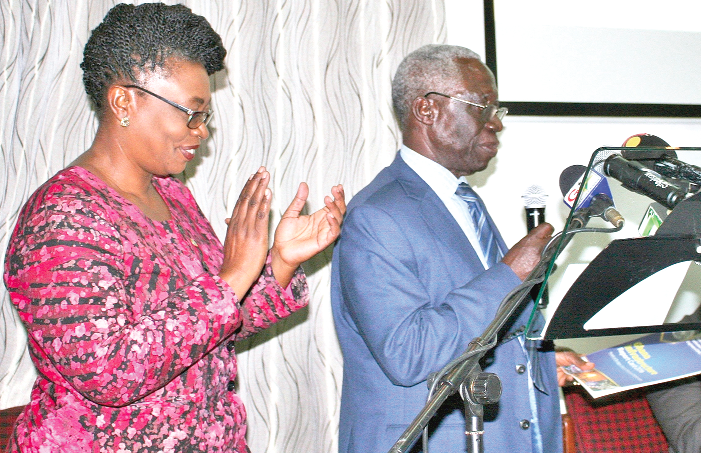
Ghana’s infrastructure poor - Report singles out road, power, water sectors
The Ghana Institution of Engineers (GhIE) has described Ghana’s road, electricity and water infrastructure as poor and lacking the capacity to meet international standards.
Advertisement
A 42-page report titled “Ghana Infrastructure Report Card 2016”, launched by the Institute, scored the country’s road network, electric power and water infrastructure with a grade D3, representing poor.
According to the report, even though some efforts have been made in the road, electricity and water infrastructure in the last few years, “majority of the systems or networks show general signs of deterioration and require attention”.
The report was launched by the Senior Minister, Mr Yaw Osafo-Maafo, in Accra last Friday.
It said most of the infrastructure in the country exhibited significant deficiencies in conditions and functionality, with increasing vulnerability to risk.
Major issues
The Chairman of the Report Committee, Dr Charles Anum Adams, said finance was a major constraint to renewal, operations and maintenance of infrastructure.
“Even though future projections indicate that the population and need for infrastructure will increase rapidly, these projections have not been adequately factored into the nation’s current planning schemes,” he said.
In the road sector, he said less than 30 per cent of the entire national networks had paved surfaces.
Regarding electric power, Dr Adams said although power-generation capacity had improved substantially in the last eight years, with the addition of both hydro and thermal sources, more needed to be done.
Concerning potable water, he said most water supply systems were built over 30 years ago and added that: “The yields from supply sources are thus no longer able to meet current demands.”
Dr Adams also stressed the need for implementing agencies to collect appropriate data for future systematic planning, saying: “The scores can be improved if funding and asset management practices are employed.”
“The government should incorporate the findings of this report into the different sectors’ medium-term development plans and ensure their implementation.”
Commendation
Mr Osafo-Maafo commended the GhIE and said he was saddened that the huge amount spent on infrastructure in Ghana was not commensurate with its current state.
He charged engineers to think outside the box and come out with more innovative ways to ensure that the country “gets value for money in our infrastructure development”.
He further urged them to extend the report card to other areas such as sanitation.
The President of GhIE, Mrs Carline Bou-Chedid, said: “The objective of the institution is to promote and advance the science and practice of engineering for the benefit of society in Ghana and globally.”




